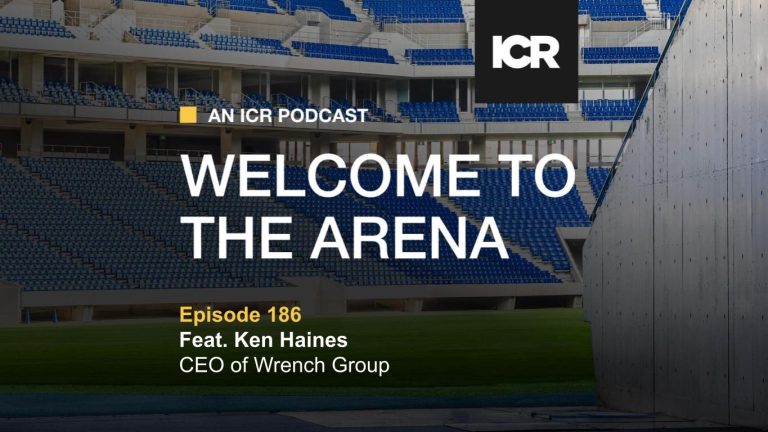Breaking into a market controlled by prominent players can be daunting, but competition breeds innovation. Smart companies with a clear vision can find opportunity in even the most established industries.
Stan Chia, CEO of ticket exchange and resale marketplace Vivid Seats, knows the challenge well. In a market dominated by companies like Ticketmaster and StubHub — and despite a long string of event cancellations and postponements due to COVID-19 — Vivid Seats carved out a space for itself and went public in October 2021.
What does it take to differentiate your company in what seems like a saturated market? In a recent episode of the ICR podcast, Welcome to the Arena, Chia shared his company’s experience and insights for other company leaders on a similar journey.
Differentiating Your Company
Even in a saturated industry, there is room for innovation. Vivid Seats saw an opportunity in customer engagement. Chia explains that the other major players in the industry offer no customer engagement beyond the initial transaction. “You buy a ticket, and that’s the end of it,” he says. “What we wanted to do is truly build a relationship with consumers where we can add more and more value.”
Vivid Seats did that by creating a loyalty program — the only one in the industry — that rewards a user with 10% earn value on every ticket they buy. On top of that, the company occasionally surprises loyalty program members with complimentary upgrades. The program entices customers to come back again and again, further boosting the company’s profitability.
The company also continued to offer a 100% buyer guarantee throughout the COVID-19 pandemic, allowing a cash refund option when events got cancelled. “That’s called doing the right thing by customers,” Chia says, explaining that in any industry, differentiating your company comes down to building trust and offering security. “You have to invest in customers. You have to do the right thing.”
Investing in Technology
Part of succeeding in the long term is focusing on and investing in scalable technology. Because Vivid Seats is a marketplace, it must think about technology from the perspective of both the buyer and seller. While buyers want an easy and intuitive way to buy tickets, sellers want the ability to grow their business.
Today, Chia estimates that Vivid Seats has more than 50% of the professional selling community on the company’s platform — and that number is only growing. “That speaks volumes in terms of our product offerings,” Chia says.
The company also boasts a proprietary digital marketing platform that they’ve spent the past 10 years investing in, which allows them to be unique in how they acquire users. “We are first-transaction profitable on every user we acquire,” Chia notes, “That is because, one, we have great products, and two, because we have a really efficient marketing platform that allows us to acquire digital users in a very cost-effective manner.”
Long-Term Growth and Diversification
According to Chia, when it comes to the future, “We are bullish on the opportunity and building a brand and building a product that represents everything that brand stands for.”
For a low-frequency business like Vivid Seats, where customers typically make relatively few purchases and often make those purchases months in advance of the ticketed event, a return on any investment will likely take time. “We expect a lot of that to come in the out years,” Chia says. Ultimately, the company expects those investments to eventually be well worth the gamble.
Battling for brand awareness can seem difficult when your competitors are big names like StubHub and Ticketmaster, but Vivid Seats is proof that it can be a battle worth fighting. And they aren’t the only winners — shaking up an established industry can benefit investors and customers, as well. For more insights on Vivid Seats’ strategy and the road it took to go public, listen to the full podcast episode.



